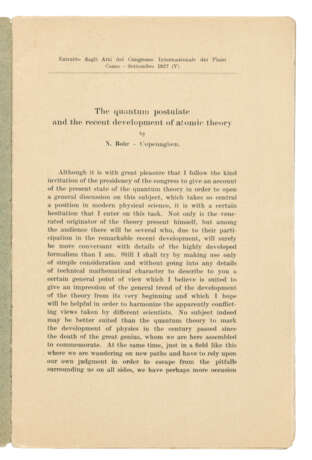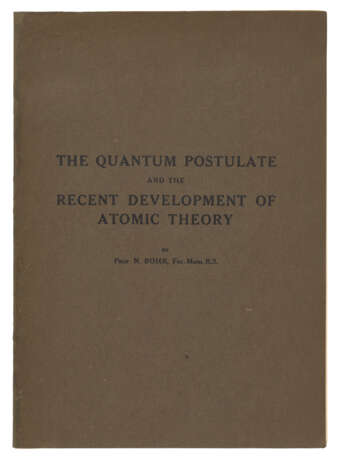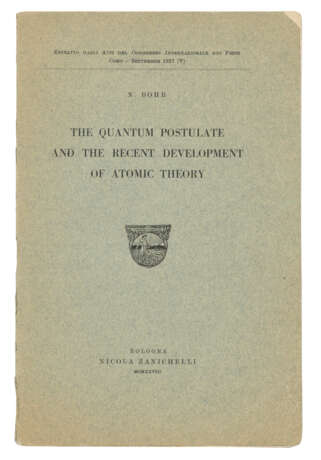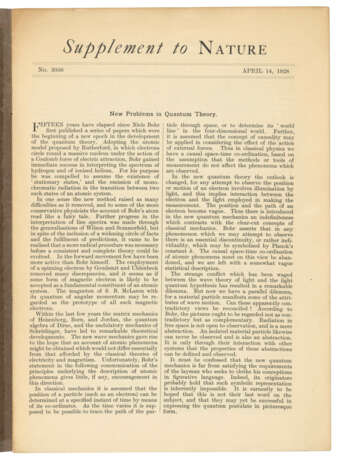ID 1105570
Lot 57 | BOHR, Niels (1885-1962)
Estimate value
£ 8 000 – 12 000
‘The Quantum Postulate and the Recent Development of Atomic Theory’. Offprint from: Nature, v. 121, n. 3050. Edinburgh: R & R Clark, April 14, 1928. [Sold with:] –The ‘Quantum Postulate and the Recent Development of Atomic Theory’. Offprint from: Atti del Congresso Internazionale dei Fisici Como, September 1927. Bologna: Nicola Zanichelli, 1929.
Extremely rare offprints of the paper in which Bohr stated his ‘complementarity’ principle, a ‘major advance that radically changes our whole view of the role and meaning of science’ (DSB). We are able to trace just a single copy of each offprint in auction records.
Bohr presented his complementarity principle on 16 September 1927 at the meeting held in Como on the occasion of the centenary of the death of Alessandro Volta. The offprint published in Bologna gives the text of this lecture. Following the conference, Bohr spent a week at Lake Como discussing his new ideas with Wolfgang Pauli, which resulted in a rewriting of the article for publication in Nature. ‘In December 1927 Bohr wrote to the editor of Nature: “I have found it most expedient to rewrite the whole article […] I am much ashamed for all the trouble I am giving you”’ (Pais, Bohr’s Times (1991), p. 316). The differences between the two versions of Bohr’s paper are very substantial and a comparison between these two articles vividly illustrates the evolution of Bohr’s understanding of the interpretation of quantum mechanics in 1927-1928. The Nature paper was published essentially simultaneously in German, Danish, English and French.
Together 2 volumes. Nature offprint: large octavo (266 x 192mm). Pp.579-590. Original brown printed wrappers (some faint stains, spine repaired). Como offprint: octavo (237 x 155mm). Pp.24. Original pale green printed wrappers (wrappers a bit creased, two small chips from outer corners, rear wrapper with short closed tears, some fading and minor staining).
| Address of auction |
CHRISTIE'S 8 King Street, St. James's SW1Y 6QT London United Kingdom | ||||
|---|---|---|---|---|---|
| Preview |
| ||||
| Phone | +44 (0)20 7839 9060 | ||||
| Buyer Premium | see on Website | ||||
| Conditions of purchase | Conditions of purchase |






